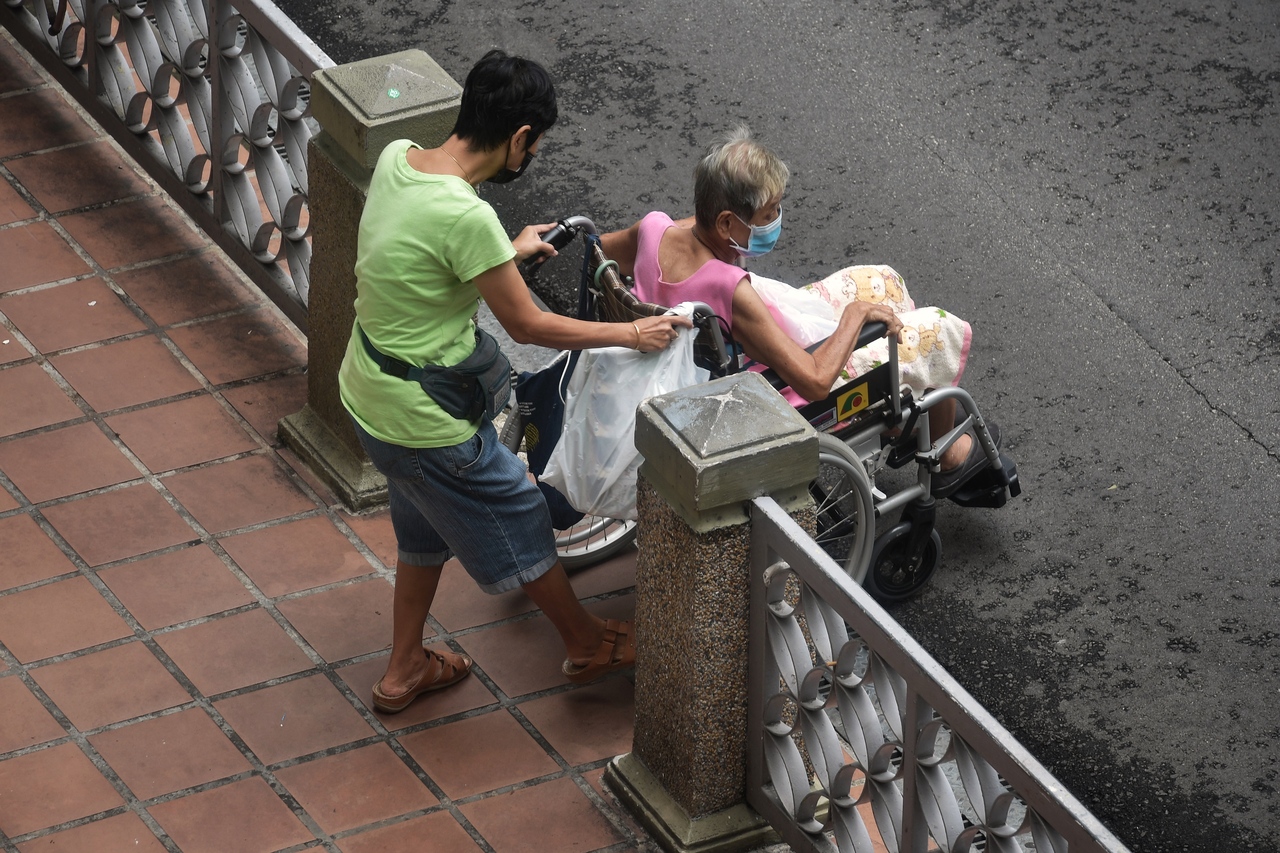Higher grant among initiatives to give more support and respite to caregivers, many of whom are women
Sign up now: Get ST's newsletters delivered to your inbox

The grant was introduced in October 2019 and more than 31,000 individuals have benefited from it.
ST PHOTO: KUA CHEE SIONG
Follow topic:
SINGAPORE - A grant for caregivers of beneficiaries who need help with daily living activities such as eating and bathing will be increased, to ease their financial burden.
The Home Caregiving Grant will be doubled from $200 to $400 for beneficiaries with monthly per capita household income of up to $1,200, or those with no income who live in a residence with an annual value of up to $13,000.
Beneficiaries with a monthly per capita household income of between $1,201 and $2,800 will receive a slightly higher sum of $250, from $200 now.
Providing some extra help to reduce the financial strain of caregivers - the majority of whom are women - is one of the ways the Government wants to better support them.
It is one of the key proposals under a White Paper on tackling women's issues that was released on Monday (March 28).
The grant, which was introduced in October 2019, aims to help lower-income families defray the costs of caregiving expenses for loved ones with permanent moderate disabilities, such as the hiring of a foreign domestic worker.
More than 39,000 individuals have benefited from this grant.
To qualify, they must require help with at least three activities of daily living - namely bathing, dressing, eating, toileting, transferring such as from bed to chair, and moving from room to room - regardless of age.
Caregiver support was one of the main concerns brought up by participants during the conversations that shaped the White Paper. Nearly 6,000 participants took part in about 160 of such sessions in the past two years.
Other plans include improving respite care options for caregivers and broadening the scope of the Household Services Scheme to better support parents and caregivers through basic child and elder-minding services. The latter is targeted to be implemented in the second half of the year.
This scheme, which has helped about 16,000 households, currently allows families to engage part-time services such as home cleaning, grocery shopping, car washing or pet sitting.
With the expansion, families will be able to engage companies under the scheme to look after their children at home or family members who need help with basic daily living. This would give caregivers some time off for self-care and to recharge.
Ms Rahayu Mahzam, Parliamentary Secretary for Health, and Communications and Information, who is co-leading the review on Singapore women's issues, said the enhanced Home Caregiving Grant will both recognise the contribution of caregivers and reduce their costs, with more help for lower-income families.
"Caregivers are the cornerstone of our society. And women tend to shoulder a large part of caregiving responsibilities, sometimes to their own detriment. It is therefore important that we continue to support caregivers in their journey and provide women the support that is necessary," she told reporters earlier this month.
She added that participants in earlier conversations had shared that caregivers sometimes have physical, social, emotional and financial challenges.
To this end, the Government will work with partners to form community-based peer support networks, to connect caregivers with the socio-emotional support they need, said Ms Rahayu.
Minister for Communications and Information Josephine Teo, who is among several political office-holders involved in the White Paper, said: "We hope that (committing more resources to caregivers) further strengthens their ability to juggle the responsibilities in family as well as in their careers."
The Government has also recently expanded the Seniors' Mobility and Enabling Fund, to help seniors and their caregivers offset the cost of home healthcare items and assistive devices when they wear out via subsidies.
More than 38,000 seniors are expected to benefit from the expansion this year.
To help families better support their caregivers and build up their savings, the Retirement Sum Topping-Up Scheme tax relief cap was increased from $7,000 to $8,000 from January, for Central Provident Fund top-ups to self and loved ones.
Other ongoing initiatives to support families who are caring for young children include ensuring they have access to affordable and quality pre-schools, and setting up an inter-agency task force to improve child and maternal health and well-being.
An Alliance for Action, or a cross-sector collaboration, has also been formed to gather feedback and improve self-care and support for caregivers of those with disabilities.
Ms Rahayu said: "We all play a part in providing support to caregivers… We also want employers to play their role in giving flexibility to workers who have caregiving requirements.
"This is an ongoing effort, something that we will need to continue to work on and we call on all of society to play a role in supporting caregivers."

